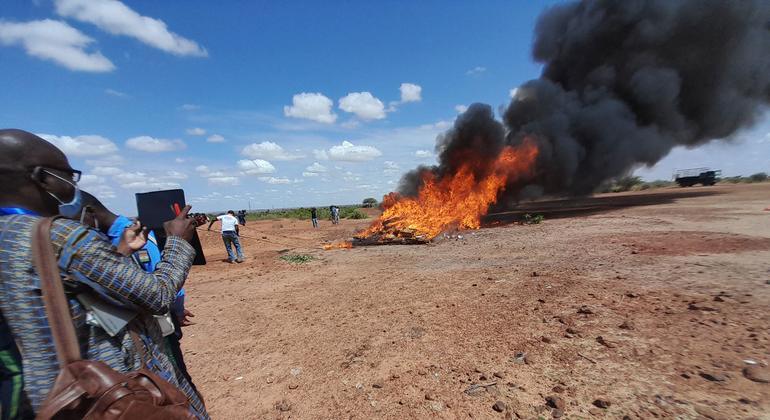In its annual report in 2024, published on Tuesday, the incb explains that unlike plant -based drugs, These substances can be done anywhere, without the need for a large -scale culture, which makes them easier and cheaper So that traffickers can produce and distribute.
The rise of powerful opioids such as fentanyl and nitazens – powerful enough to cause overdoses with tiny doses – has worsened the crisis, causing record deaths.
“”The rapid expansion of the illicit synthetic pharmacy industry represents a major world public health threat With potentially disastrous consequences for humanity, “said the president of the incB, Jallal Toufiq.
“We have to work together to take stronger measures against this deadly problem which causes hundreds of dead and communities,” he continued.
Traffickers remain ahead of the regulations
Criminal groups are constantly adapted to escape the police.
By exploiting legal shortcomings, they develop new synthetic compounds And use artificial intelligence to find alternative chemicals for the production of drugs.
New smuggling methods – including drones and postal deliveries – make these drugs more difficult to detect.
Therefore, The crises of synthetic substances now exceed those of drugs based on traditional plants such as heroin and cocaine.
Patchwork response
Despite the efforts to brake synthetic drugs, the responses remain fragmented, allowing traffickers to stay in the lead.
Incb calls for stronger global cooperation, including partnerships between governments, private companies and international organizations, to disrupt supply chains and prevent damage.
Drugs out of reach
While synthetic drugs flood illegal markets, millions of people in low and intermediate income countries still do not have access to essential pain relief drugs.
The report stresses that opioid pain relievers such as morphine remain unavailable in regions such as Africa, South Asia and Central America – not due to supply shortages, but due to the obstacles to distribution and regulation.
Incb urges opioid countries to increase production and affordability to improve palliative care and pain management.
Regional concerns on hot spots
The report identifies several regions where synthetic drug trafficking is expanding.
In Europe, the imminent heroine deficit after the ban on opium in 2022 in Afghanistan could push more users to synthetic alternatives In North America, despite efforts to curb the crisis, Deaths related to synthetic opioids remain at record heights.
The manufacture, traffic and the use of amphetamine type stimulants increase through the Middle East and Africa, where treatment and rehabilitation services are often inadequate.
Meanwhile, in the Asia-Pacific region, the trafficking in methamphetamine and ketamine continues to grow, especially in the golden triangle.
Call for urgent action
The Incb urges governments to strengthen international collaboration, improve data sharing and extend medication and processing prevention services.
Without decisive action, the synthetic trade in drugs will continue to evolve, putting more lives in danger.




